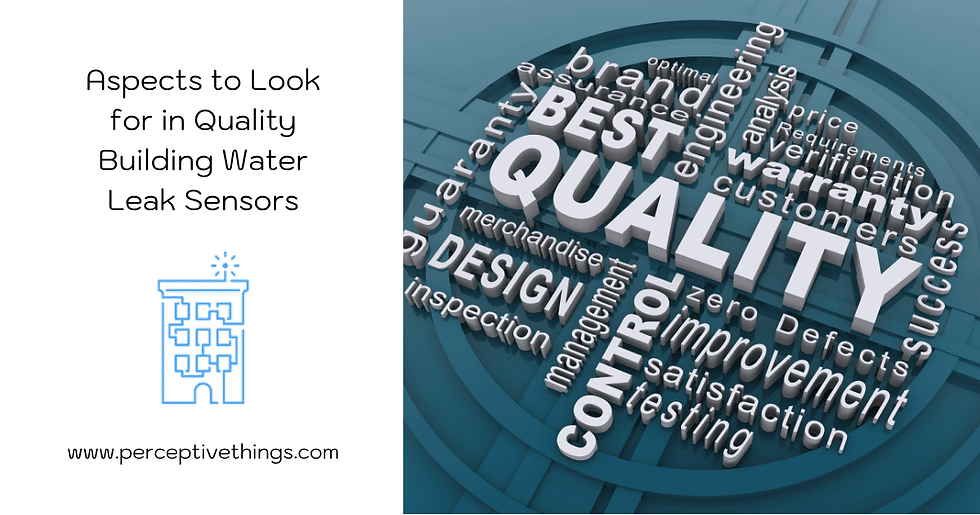Do you have a CLUE?
- Perceptive Things Team

- Jul 17, 2020
- 3 min read
Updated: Aug 19

Most people are familiar with their credit reports from providers like Equifax or Experian. These reports are used by many industries to determine your credit risk, verify your identity, or provide data for background checks. But there is one report on your financial history that you may not be familiar with, the CLUE report.

CLUE stands for "Comprehensive Loss Underwriting Exchange". Automobile and home insurance providers feed data about your personal claim history into this shared database including:
Policy number
Claim number
Date of loss
Loss type
Claim payout amount
This historical data follows you for seven years and provides Automobile Property & Casualty insurance companies valuable information on your claim risk. This can be used to set your new policy and renewal premium rates. The information can also be used by insurance companies to deny you a new policy, or drop coverage altogether!
It is important to note that CLUE also tracks historical claim data around individual properties as well. This is another way insurance companies use CLUE data for assessing risk when writing policies. It's not just about your personal history, it's also your home!
Risks to High-Rise Homeowners

According to Kiplinger, in a study conducted by the California Insurance Department, 25% of insurance companies refused to renew policies of customers who made one to two non-water damage claims in three years, and 32% refused renewals for customers who made one to two water damage claims within the same period.
When living in a multi-family high rise, your most likely insurance claim will be for water damage from a leak, which usually originates from an apartment above. Such claims are insidious as they are completely unavoidable by the policyholder. Aging risers, old appliances and fixtures, and clogged HVAC condensation lines in other apartments are ticking time bombs to their neighboring units below.
Before writing a new policy, insurance companies will assess a homeowner's risk, and if the owner can demonstrate they take good care of their property and have systems in place to reduce risk, they will be offered low premiums and deductibles. But Internal historical data on claims for a particular building, in addition to a policyholder's CLUE report, are often used to deny coverage or increase premiums and deductibles.
At Perceptive Things®, it is not uncommon for us to hear stories of dropped or denied coverage. Consider the family we recently spoke with who owns a condominium apartment on Manhattan's Upper West Side. They were leaked on twice from above over three years, suffering major losses, and were forced to move into temporary housing for five months while repairing the damage. Their insurance claims were substantial in both instances, so when it came time to renew their policy, the renewal was refused. This resulted in having to find a completely new insurance carrier. Thanks to CLUE, during their search, they were denied coverage by all major carriers. They ended up with a basic catastrophic plan that has a $100,000 deductible! If the family is leaked on again, they will be responsible for the full cost to repair any damage, unless it exceeds the deductible by a significant amount.
Get your CLUE report

Thanks to the Fair Credit Reporting Act, you can request a copy of your CLUE report once a year from LexisNexis Risk Solutions, the company that provides the exchange. To do so electronically, go to https://consumer.risk.lexisnexis.com/request and fill out the form. It is also recommended to get a CLUE report for your home, or a home you are considering purchasing, which can be provided by several disclosure companies.
Reduce your risk with loss control technology
The Perceptive Things® loss control technology platform can protect from excessive insurance claims by tenants and owners in a multi-family building. Leak detection, environmental conditions monitoring, and a host of other sensors can become the foundation of a comprehensive risk mitigation plan. By protecting every unit in a residential building, damage from cascading water leaks, frozen pipes, mold growth and more can be prevented. Our team has deep knowledge of the risks to individual homeowners as well as to the common and mechanical areas of a building. We make it easy and cost-effective to install remote monitoring, and no IT training is necessary!
Sign up below to learn more today!




Comments